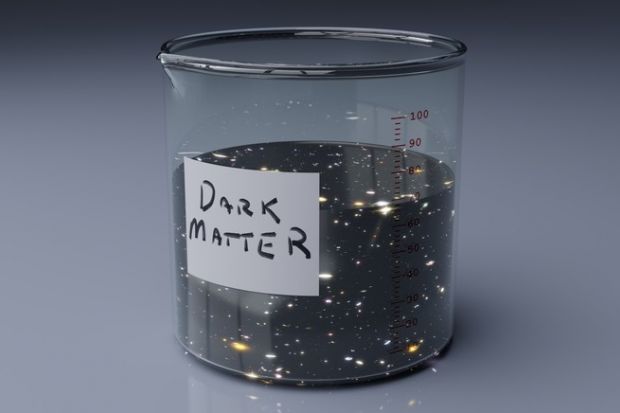This was a great week for physics at the University of Sheffield, and a joyful one for me, as president of the Institute of Physics and Sheffield’s former vice-chancellor. I was there to attend the opening of a new laboratory in which a Sheffield physicist, Ed Daw, is looking far, far beyond the horizons of his adopted northern city as he starts up detection of dark matter in the universe.
Meanwhile, in sharp contrast, UK universities were making the news not for their brilliant scholars doing important work but for their financial woes. Increasingly urgent asks of government led the BBC news, and there was much talk of decline.
It was a brilliant sunny day as I walked into Sheffield’s campus, past the modernist Arts Tower, in which my daughter and son-in-law got a superb education and training as architects. I briefly stopped at my old stomping ground, Firth Court, and looked at the list of Sheffield Nobel prizewinners at the entrance. It reminded me, once again, of a proud and powerful tradition of scholarship that has inspired generations of past students and has persisted in spite of all the challenges thrown in its way.
Ed was dressed in his best, as I was, ready for the cutting of the red ribbon around the impressive kit he has been assembling. His excitement that the first critical stage of the experiment was working even better than he could have expected was palpable.
But although the physics was important, he told me, just as important to him were the people such cutting-edge work would inspire. Ed worked with the team that detected the first gravitational waves that travelled across the cosmos, and he is now looking for the dark matter that determines so much of the structure of the universe from a newly refurbished laboratory in the Hicks building – William Mitchinson Hicks being Sheffield’s first vice-chancellor and a professor of physics and mathematics: he would have been awed by what is happening in his university a century on.
Dark matter is seen only when it travels through a strong magnetic field, in which it can make a tiny burst of energy, a photon. But the burst is so weak you have to keep the equipment as cold as possible to distinguish the burst from those occurring due to heat. Cooling the whole assembly to mere thousandths of a degree above absolute zero is a big technical challenge, but Ed told me the liquid helium refrigerator was working a treat thanks to the brilliant technical staff he was working with.
The group is committed to making a splash for their university and their city, and Ed has even thought of a way to use that most Sheffield of materials, stainless steel, in the fabrication of a stronger, copper-coated vessel for use in the experiment. I thought of the local inventor of stainless steel, Harry Brearley, who had himself worked in shared industrial labs with this university a century earlier to develop fish knives that would not tarnish.
One thing Brearley would have understood, as a key player in an Edwardian industry built around global trade, is that what happens in one place is only part of the story. The Sheffield lab takes its place within the UK’s effort to develop new quantum-based ultra-sensitive technologies, part of a truly international scientific endeavour.
Like so many other UK academics, being a scholar was my vocation. A curiosity about the universe, first fed in my local lending library in Bridgend, has taken me around the world and brought me into contact with fellow intellectual travellers who wanted to understand what and how and why. My old university – founded by a Welsh physicist who came to Sheffield via Oxford, as I did – is engaged in so many such noble pursuits. As the poet laureate John Masefield said when he received his DLitt at Sheffield: “There are few earthly things more splendid than a university.”
Masefield was speaking in 1946, in the wake of a war that had ravaged the world, devastated Sheffield’s steel foundries and taken so many of its students’ lives. So imagine the mood when the university community heard him reflect that “religions may split into sect or heresy; dynasties may perish or be supplanted, but for century after century the university will continue, and the stream of life will pass through it, and the thinker and the seeker will be bound together in the undying cause of bringing thought into the world. To be a member of these great societies must ever be a glad distinction.”
What I found in Sheffield was “glad distinction”, and I see it in universities right across the world. But it does not exist by right but by purpose, dedication, money and work. Societies that value this will thrive. Those that don’t will impoverish themselves economically, intellectually and in their very spirit.
UK universities, like others across the West, may be fighting for what we preserve, but we must not lose heart. Our work is ambitious, hard, grand. As Tennyson puts it in Ulysses: “Tho’ much is taken, much abides.” And, despite the challenges, our unsung heroes evidently remain “strong in will to strive, to seek, to find, and not to yield”.
Sir Keith Burnett is president of the Institute of Physics and served as vice-chancellor of the University of Sheffield from 2006 to 2017.




